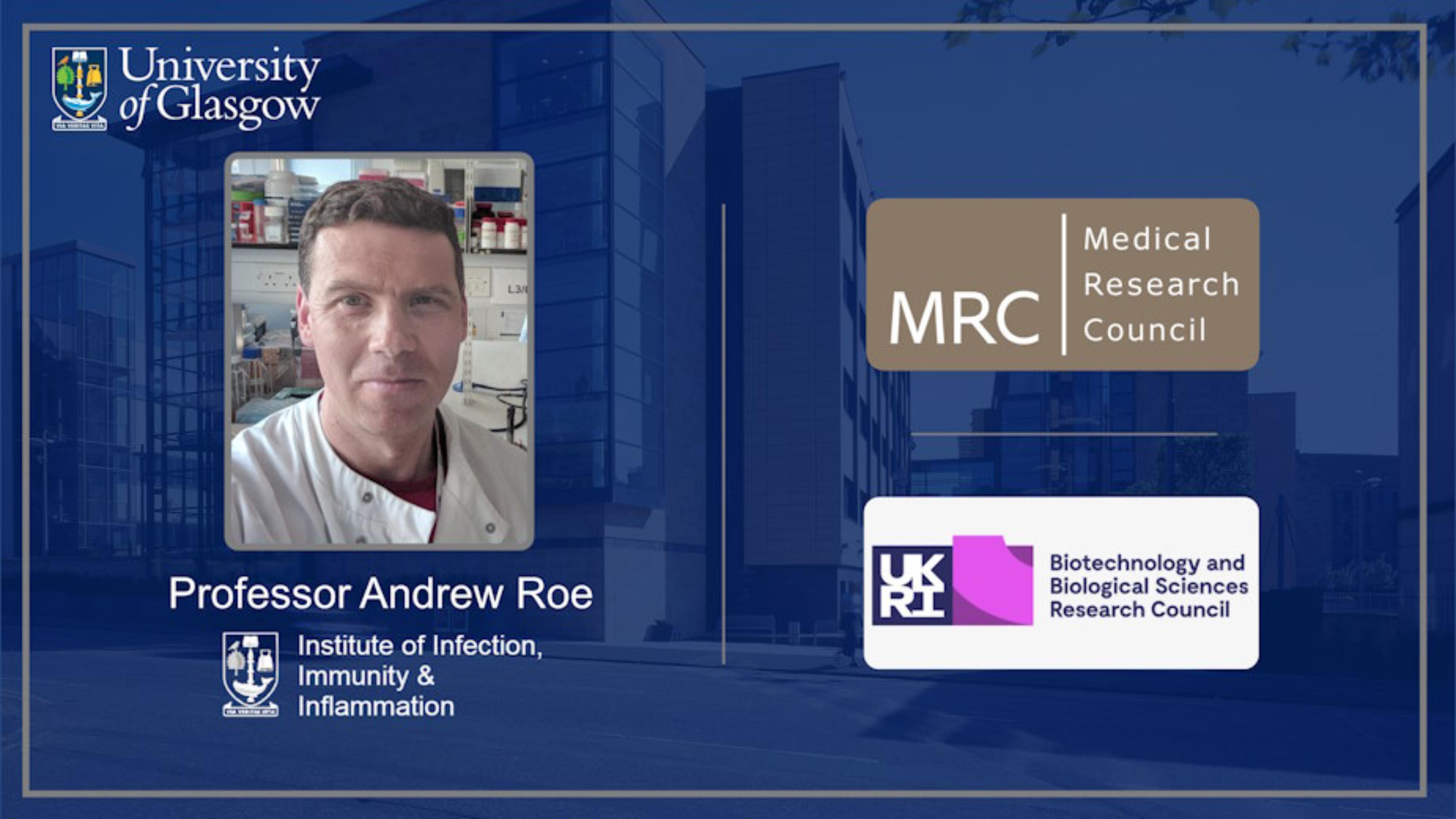Double grant success for Bacteriology
Published: 10 February 2021
The Institute's Head of Bacteriology, Professor Andrew Roe, was recently awarded project grants from both the Medical Research Council (MRC) and Biotechnology and Biological Sciences Research Council (BBSRC).

The Institute's Head of Bacteriology, Professor Andrew Roe, was recently awarded project grants from both the Medical Research Council (MRC) and Biotechnology and Biological Sciences Research Council (BBSRC).
The MRC grant, awarded in collaboration with Dr Gill Douce, Dr David France (School of Chemistry), and Dr Paul Hoskisson (University of Strathclyde), will allow the team to continue their research into Aurodox, a previously discarded 'antibiotic'.
Aurodox is produced by Streptomyces (see second image, right) and was discovered in the 1970s but rejected as a treatment because of its poor antibacterial properties.
However, work by the Roe group showed Aurodox is capable of blocking infections without actually killing the bacteria.
This radically different 'antivirulence' approach is considered to reduce selective pressure for the development of antibiotic resistance and may provide the first effective treatment for the infamous 'burger bug' E. coli O157:H7, which is a particular problem in Scotland.
The BBSRC grant, awarded in collaboration with Professor Olwyn Byron (School of Life Sciences), allows support continuation of their multidisciplinary work on AdhE, an anti-virulence drug target present in several zoonotic and animal pathogens.
The team are excited to further develop collaborations with Professors Ji-Joon Song (KAIST, Korea; cryo-EM) and Rudi Marquez (U. Canterbury, New Zealand; drug development) and are looking forward to working with Professor Syma Khalid (U. Southampton; molecular dynamics) to fulfil the objectives of the grant which should lead to a better understanding of AdhE structure-function and solve the structure of AdhE with lead compounds bound to the protein.
This will facilitate the design of an entirely new family of anti-infective agents that could help to prevent or treat a wide range of Gram-negative pathogens.
First published: 10 February 2021

